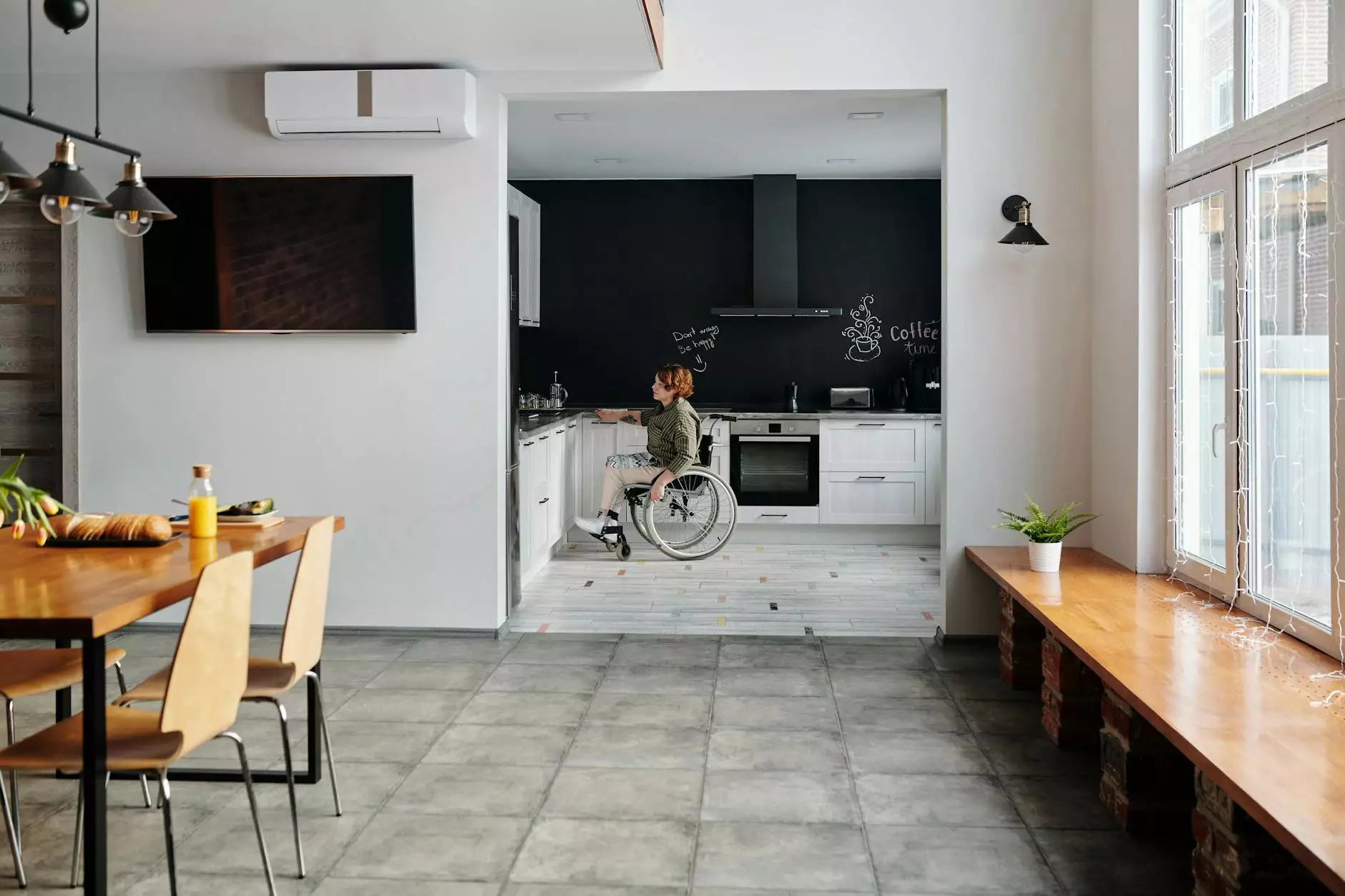Enhancing Mobility: The Importance of Residential Wheelchair Lifts

In today's world, accessibility has become an essential aspect of living independently, especially for those who use wheelchairs or have limited mobility. Residential wheelchair lifts are a groundbreaking solution that greatly enhances the quality of life for individuals with mobility challenges. In this extensive guide, we will explore the critical benefits, types, installation considerations, and maintenance of residential wheelchair lifts, ensuring that you are well-informed about this vital topic.
Understanding the Need for Residential Wheelchair Lifts
As we age or face health issues, mobility can become a significant concern. For many, navigating stairs or getting in and out of vehicles can pose daunting challenges. Residential wheelchair lifts provide a safe and effective method to overcome these obstacles, allowing individuals to maintain their independence while enhancing their safety and comfort.
The Benefits of Residential Wheelchair Lifts
- Improved Accessibility: Wheelchair lifts provide greater access to different levels of the home, enabling individuals to reach all areas without relying on others.
- Enhanced Safety: Many wheelchair lifts include safety features such as anti-slip surfaces and safety straps to ensure that users remain secure during transport.
- Increased Independence: By having a residential wheelchair lift, users can enter and exit their homes on their own, fostering a sense of autonomy.
- Value Addition to Property: Installing a wheelchair lift can increase the value of a property, making it more attractive to potential buyers, especially those looking for accessible homes.
- Versatility: Residential wheelchair lifts can be used for both indoor and outdoor settings, providing flexibility in various situations.
Types of Residential Wheelchair Lifts
There are several types of residential wheelchair lifts, each designed to meet specific needs and home layouts. Understanding these types can help you choose the right one for your situation:
1. Platform Lifts
Platform lifts are widely used in residential settings. They are suitable for both indoor and outdoor use and can be installed in a variety of configurations. These lifts are designed to carry wheelchairs and their occupants with ease.
2. Porch Lifts
Porch lifts are specifically designed for outdoor settings, allowing users to gain access to porches or decks. They typically have a rugged design to withstand varying weather conditions.
3. Vertical Wheelchair Lifts
Vertical wheelchair lifts are built to transport individuals between levels, such as from a basement to a first floor or from a first floor to another level. These lifts can travel significant heights and are great for multi-story homes.
4. Inclined Platform Lifts
Inclined platform lifts run on a track and are used on stairways. They are designed to lift the wheelchair and its occupant along stairs, making them an excellent option for homes with straight staircases.
Key Considerations for Installation
When considering the installation of a residential wheelchair lift, several factors should be taken into account to ensure you make the most informed choice:
1. Assessing Your Space
The physical layout of your home is crucial. Before installation, assess the available space and how the lift will affect the surrounding area. Ensure there is enough room for the lift to operate without hindering traffic flow.
2. Building Codes and Permits
Always check local building codes and obtain the necessary permits for installation. Compliance with these regulations is vital, not just for legal reasons but also for the safety of the users.
3. Choosing the Right Contractor
Selecting a qualified contractor who specializes in residential wheelchair lift installations is imperative. They will have the expertise to ensure the lift is installed correctly and adheres to safety standards.
4. Electrical Requirements
Understand the electrical requirements for the lift you choose. Some models may require specific electrical setups, and a professional should handle any wiring to maintain safety.
Maintenance of Residential Wheelchair Lifts
To ensure the longevity and reliability of your residential wheelchair lift, regular maintenance is essential. Consider the following tips for maintaining your lift:
- Regular Inspections: Schedule regular inspections with qualified service professionals. They can verify that all components are functioning as intended.
- Clean the Lift: Keep the lift clean by wiping down surfaces and ensuring that debris does not accumulate, which can affect functionality.
- Check Safety Features: Regularly test safety features, such as emergency stop buttons and safety straps, to ensure they are operational.
- Monitor Usage: Pay attention to how the lift is used. Educate users on proper operation to prevent misuse, which can lead to malfunctions.
Integrating Wheelchair Lifts into Home Health Care
As the population ages and the demand for home health care increases, having wheelchair lifts in residential settings plays a significant role in providing adequate personal care services. These lifts allow caregivers to assist patients without the risks associated with lifting or assisting individuals up or down stairs.
The Impact on Elder Care Planning
In the realm of elder care planning, accessibility is paramount. A home that is equipped with residential wheelchair lifts not only allows for ease of mobility but also reduces the potential for accidents. Many family members are concerned about the safety of their aged loved ones. Installing wheelchair lifts can greatly alleviate those concerns, providing peace of mind and enhancing quality of life.
Conclusion: A Step Towards Independence
Residential wheelchair lifts are not merely conveniences; they are vital tools that empower individuals with mobility challenges. By improving access and enhancing safety, residential wheelchair lifts enable greater independence for users and provide families with the comfort that their loved ones can navigate their homes safely.
As we continue to innovate and adapt our homes to meet the needs of all individuals, embracing solutions like wheelchair lifts will ensure that every person has the ability to live with dignity and independence. If you are considering a lift for your home, explore your options with experts like expressramps.com to find the very best solution for your needs.









